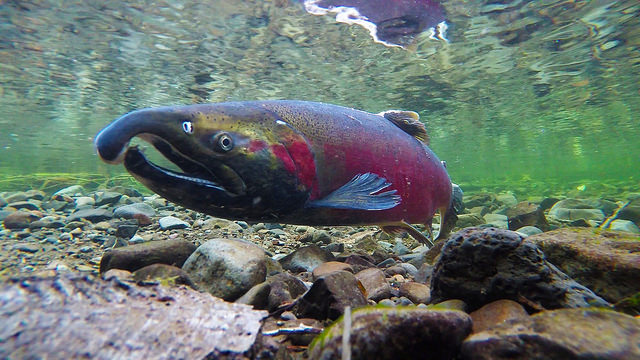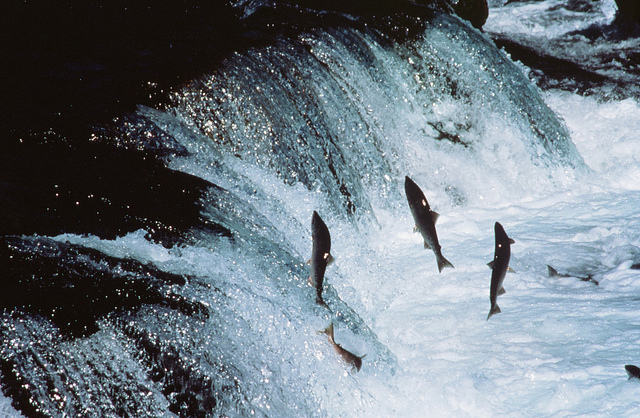
The breeding grounds of many types of fish are not currently protected under the Fisheries Act (Credit: Bureau of Land Management Oregon, via Flickr)
In 2013, many in the Canadian scientific community were outraged when major changes were made to Canada’s Fisheries Act, stripping away protections for many species of fish.
Now, three years later, the same scientists – along with nearly 50 groups from the legal, conservation and scientific communities – have written a letter to the new Fisheries Minister Hunter Tootoo urging him to repeal the changes and take further steps to modernize the legislation, which was first enacted in 1868.
“We request that previous habitat protections be immediately reinstated in the Fisheries Act,” the letter stated, which was signed by groups like West Coast Environmental Law and the World Wildlife Fund.
The previous conservative federal government removed sections of the act that protected areas where fish swim and breed. Only fish that are part of a commercial, recreational, or aboriginal fishery are currently protected, while many native species are not.
Under the current legislation, a stream that contains fish that are not related to a commercial fishery are not protected.
Dr. Jeff Hutchings, a fisheries scientist from Dalhousie University, critiqued the legislation in Outdoor Magazine in 2014, only months after the legislation passed.
“The revised act represents a huge setback to the protection of most native fish, as well as aquatic species at risk,” he wrote.
In 2015, when the new fisheries minister Hunter Tootoo was appointed to cabinet, he received a mandate letter from Prime Minister Trudeau instructing him to reinstate the past legislation.
“I take very seriously my mandate from the Prime Minister to restore lost protections of the Fisheries Act,” the minister said in an email to The Globe and Mail.
Yet the recent letter by the concerned coalition of scientists, lawyers and environmentalists to Minister Tootoo urged the government to not only restore lost protections, but to further modernize the Fisheries Act, bringing it into the 21st century.
In order to modernize the act, they want the government to first begin consultations with indigenous people, provincial governments, industry, and conservation groups, to find a consensus on the best path forward.
They also want greater attention paid to aboriginal fisheries. The Fisheries Act should ensure “healthy fish populations and habitat that will sustain treaty and aboriginal rights in perpetuity,” the letter says.
One can imagine the changes will be received with a sense of relief for those who study Canada’s marine and freshwater ecosystems.
In the same Outdoor Canada article from 2014, Dr. Hutchings wrote:
“[Canada] watches over the globe’s longest coastline. But this geographical wealth comes with a responsibility to serve as internationally respected stewards of this vast environment. Under the latest changes to the Fisheries Act, however, we are anything but.”
According to CBC News, members of the coalition met with federal officials to discuss the issue on April 11, 2016, in Ottawa.


